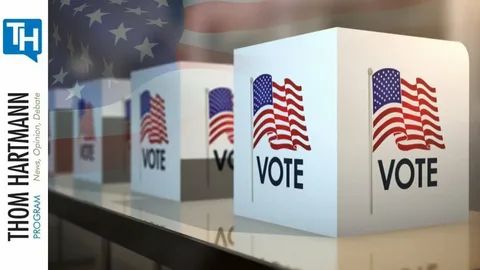Introduction
As the U.S. presidential election and a crucial Federal Open Market Committee (FOMC) meeting approach, markets are bracing for heightened volatility. Political and monetary policy events significantly impact investor confidence, market sentiment, and economic forecasts.
The outcome of the U.S. election could determine the regulatory landscape, while the FOMC’s decisions might shape economic policy in response to inflation and interest rate concerns. Together, these factors create an intense environment for traders, investors, and economic analysts.
This post will examine how the upcoming U.S. election and FOMC meeting are expected to influence market trends, offering insights into what investors can anticipate in this volatile week.

1. U.S. Election and Market Sentiment: Anticipating Policy Shifts
The U.S. election carries weight in global markets due to its implications on policy direction, regulation, and international relations. Investors and economists closely monitor the political landscape, as changes in administration or legislative control can shift the government’s approach to taxes, infrastructure, and trade, each of which influences market sectors in unique ways.
- Political Policies and Sector Impacts: The election outcome can significantly alter industry-specific policies. For instance, a leadership shift favoring clean energy could bolster renewable stocks, while policies focused on energy independence may favor oil and gas companies. Financial services, healthcare, and technology sectors are also highly sensitive to regulatory changes.
- Regulatory Concerns and Tech Giants: Recent scrutiny on major technology companies may intensify with a new administration. High valuations and potential anti-trust actions against tech giants have already injected some volatility into the sector. Depending on the election outcome, market trends in technology stocks could see drastic changes.
- International Relations and Trade: Trade policy is another area influenced by the election, with significant implications for multinational corporations. Policy shifts toward tariffs or changes in trade agreements with large economies like China could impact markets, especially in manufacturing, tech, and agriculture sectors.
Market responses are likely to be immediate as investors react to election results and assess new policies. However, the degree of market fluctuation often depends on the perceived alignment or disparity between current expectations and the election outcome.
2. FOMC Meeting: Interest Rate Expectations and Economic Policy
As the FOMC convenes, investors are speculating on possible policy changes, with a particular focus on interest rate adjustments. The Federal Reserve’s stance on interest rates, particularly during times of economic uncertainty, is a major driver of market trends, especially in bond, stock, and real estate markets.
- Interest Rate Projections and Inflation: The Fed’s goal to curb inflation has led to a series of rate hikes over recent quarters. During this volatile week, the market is watching closely for any signs of a shift in policy, especially if inflation data shows signs of cooling. A pause or reduction in rate hikes could signal a more accommodative policy stance, which may boost equity markets, particularly growth stocks.
- Impact on Bond Yields: Bond markets tend to react swiftly to Fed policy changes. If the FOMC indicates a continued tightening stance, bond yields may rise as investors demand higher returns for lending. Conversely, a dovish tone could result in lower yields, affecting the fixed-income market. This FOMC meeting is crucial as it could provide insights into the Fed’s approach in the coming months.
- Employment Data and Economic Outlook: The Fed’s decisions are often guided by employment and inflation metrics. Recent data on job creation and unemployment will likely influence discussions, as high employment levels may support continued rate hikes to control inflation. If the Fed sees a slowing labor market, it may indicate that rate hikes are nearing their peak.
Investors often view FOMC meetings as pivotal moments for adjusting portfolios. Whether the Fed signals continued tightening or a shift toward rate cuts, each scenario could produce distinct market trends across sectors, making this FOMC meeting one of the most anticipated in recent months.
3. Analyzing Potential Market Trends: Stock, Bond, and Commodities
The dual impact of the U.S. election and the FOMC meeting creates a challenging but opportunity-rich environment for investors. Both events can lead to short-term volatility, but they also establish trends that may persist over the following months. Here’s a closer look at what to expect in key asset classes:
- Equities and Stock Market Volatility: The stock market could experience swings as political outcomes and FOMC decisions unfold. While financials and industrials may benefit from a favorable political climate, tech stocks may face headwinds if regulatory pressures increase. Defensive sectors like consumer staples and healthcare might attract investors seeking stability amid election-related volatility.
- Bonds and Fixed Income: As the Fed discusses interest rates, bond yields are likely to react. Higher rates typically depress bond prices, especially for long-term bonds, while a pause in rate hikes could make bonds more attractive. Treasury bonds might see an uptick in demand as a safe-haven asset during election and FOMC-induced volatility.
- Commodities: Oil and Gold: Political uncertainties can impact oil prices due to concerns over foreign policy and trade, especially if new sanctions or tariffs come into play. Gold, on the other hand, often rises in value during periods of political or economic uncertainty, making it a potential hedge against market risk during this volatile week.
Understanding these trends can help investors better position their portfolios to take advantage of opportunities or mitigate risks as the market responds to these dual events. Diversification and strategic rebalancing might be prudent moves in response to the expected volatility.
4. Investor Strategies: Navigating Uncertainty and Market Volatility
In volatile weeks such as this, developing a proactive approach to portfolio management is essential. The combined impact of the U.S. election and the FOMC meeting requires strategies that prioritize flexibility, hedging, and a strong focus on long-term objectives.
- Hedging Against Risk: Investors can consider hedging strategies to protect their portfolios. Options such as purchasing put options on major indices or investing in assets that are negatively correlated to stocks (e.g., gold or Treasury bonds) may offer a buffer against downside risk.
- Focus on Defensive Assets: Defensive stocks, known for their resilience during turbulent times, can provide stability. Consumer staples, utilities, and healthcare are often seen as safe harbors due to consistent demand, even during economic downturns or policy shifts.
- Dollar-Cost Averaging and Long-Term Investing: For long-term investors, dollar-cost averaging (DCA) into equities may be an effective way to navigate this volatile week. Regularly investing a fixed amount reduces the impact of short-term fluctuations, aligning with a focus on long-term growth regardless of election and FOMC-induced volatility.
By balancing caution with calculated risk, investors can manage the volatility brought about by this high-stakes week, making strategic decisions that align with their investment goals.
Conclusion
The approaching U.S. election and FOMC meeting present a significant test for markets, injecting an anticipated level of volatility that could influence market trends well beyond the week itself. As investors and analysts await key announcements and potential shifts in policy, preparing for a range of scenarios is essential to capitalizing on opportunities while mitigating risk.
Both events underscore the complexity of modern markets, where political developments and economic policies converge to shape investor confidence and asset valuations. Whether it’s the influence of fiscal policy from the election or monetary direction from the FOMC, understanding these market-moving factors can provide a strategic edge.
What do you think will be the most impactful outcome of this volatile week? Leave a comment below to share your insights or ask questions about how these events might shape your investment strategy!






